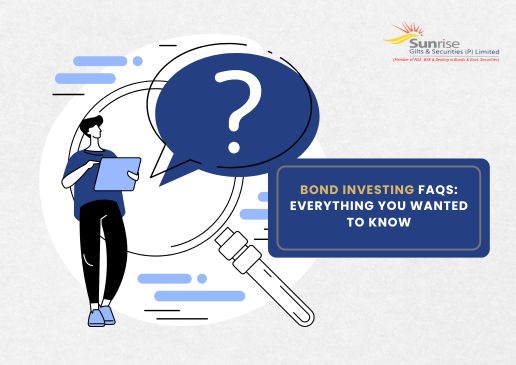
2024 Bond Market trends: insights and predictions
Investors, policymakers and economists will continue to focus on the bond market as we move through 2024. The bond market, including government bonds, corporate and municipal bonds, as well as other debt securities, is a barometer of economic health, and an investment and saving vehicle. The bond market is shaped by several trends this year. These are influenced largely by the global economy, interest rate changes, and investor sentiment.
1. Interest Rate Dynamics
The fluctuation in interest rates is one of the biggest trends on the bond market. The Federal Reserve, in particular, has been actively managing the interest rate to balance economic growth with inflation. In 2023 we saw interest rates rise to curb inflation which was at multi-decades highs. In 2024, economists are predicting that the Federal Reserve will adopt a cautious approach. If inflation continues to ease, there is a possibility of less rate increases or even rate cuts. These changes directly affect bond yields, and bond prices. Higher rates lead to lower bond prices.
2. Bond Yields and Inflation Concerns
Investors in bonds continue to be concerned about inflation. Although inflation rates have slowed from their peaks in 2022 it continues to play a key role in shaping the bond market. A higher inflation rate reduces the purchasing ability of future interest payments and leads to a demand for higher yields. Investors are looking for protection from rising prices and inflation-linked bonds such as Treasury Inflation Protected Securities (TIPS) have gained popularity this year. Bonds from emerging economies are also gaining in popularity, as their inflation dynamics are different from those of developed economies. They offer diversification and higher yields.
3. Original Issue Discount Bonds
OID bonds have a discounted face value and the difference in price between the face value and the purchase price is considered interest. OID must be reported by the IRS as it accumulates, even if you don't get the interest until after the bond matures. The IRS calls this process accretion. It means that you must pay tax on interest income every year, even if cash is not received. Understanding this concept will help you accurately report income and manage cash flow.
4. Capital Gains and losses
If you sell a bond prior to its maturity, it can result in capital losses or gains. These have a different tax treatment than interest income. The profit you make when selling a bond is considered capital gain. It is a long-term gain if it has been held for over a year. This capital gain is taxed lower than ordinary income. Selling a bond at a lower price than the original purchase price will result in a capital gain, which can be offset by other capital gains or up to $3,000 per year of ordinary income.
5. Tax-Exempt Bonds and Taxable Bonds within a Portfolio
By managing your tax-exempt bonds and taxable bond mix strategically, you can maximize your return after taxes. Tax-exempt municipal bond holders often enjoy higher returns than those with lower income brackets. It is important to evaluate your tax bracket as well as your investment goals in order to determine the best bond allocation.
6. Municipal Bonds and AMT
AMT applies to certain municipal bonds known as private activity bonds. These bonds are exempt from federal income taxes, but the interest must be added to AMT calculations. Investors who are subject to the AMT should take care to limit their private activity bond holdings in order to avoid unexpected tax liabilities.
7. Accounts Tax-Advantaged
Conclusion
Understanding the tax implications for bond investments is crucial to maximizing returns and making informed choices. Investors can navigate the complexity of bond taxation by considering factors such as the type of bond, the accrued interest and OID bonds, the capital gains and losses and the tax-advantaged account benefits. Tax planning can improve the efficiency of bond investments. This will allow you to retain more of your hard earned income and reach your financial goals faster. A tax advisor will provide you with personalized advice tailored to your financial situation and investment strategies.














